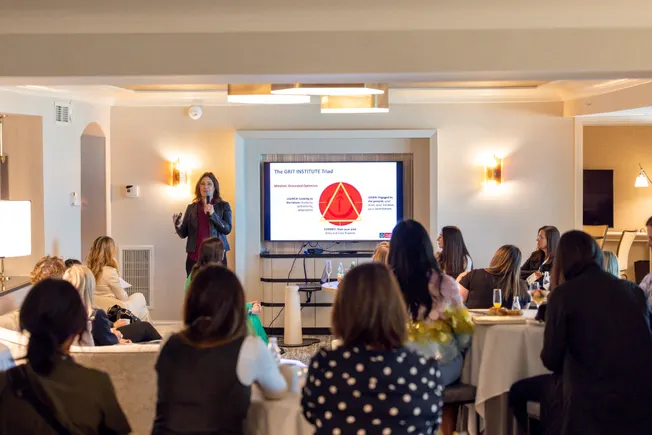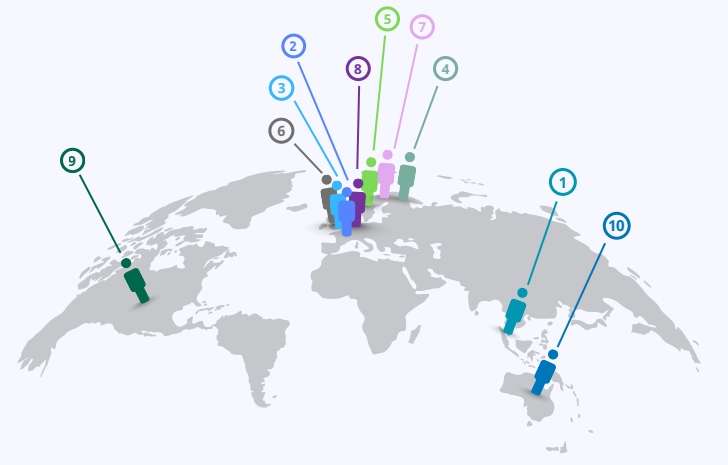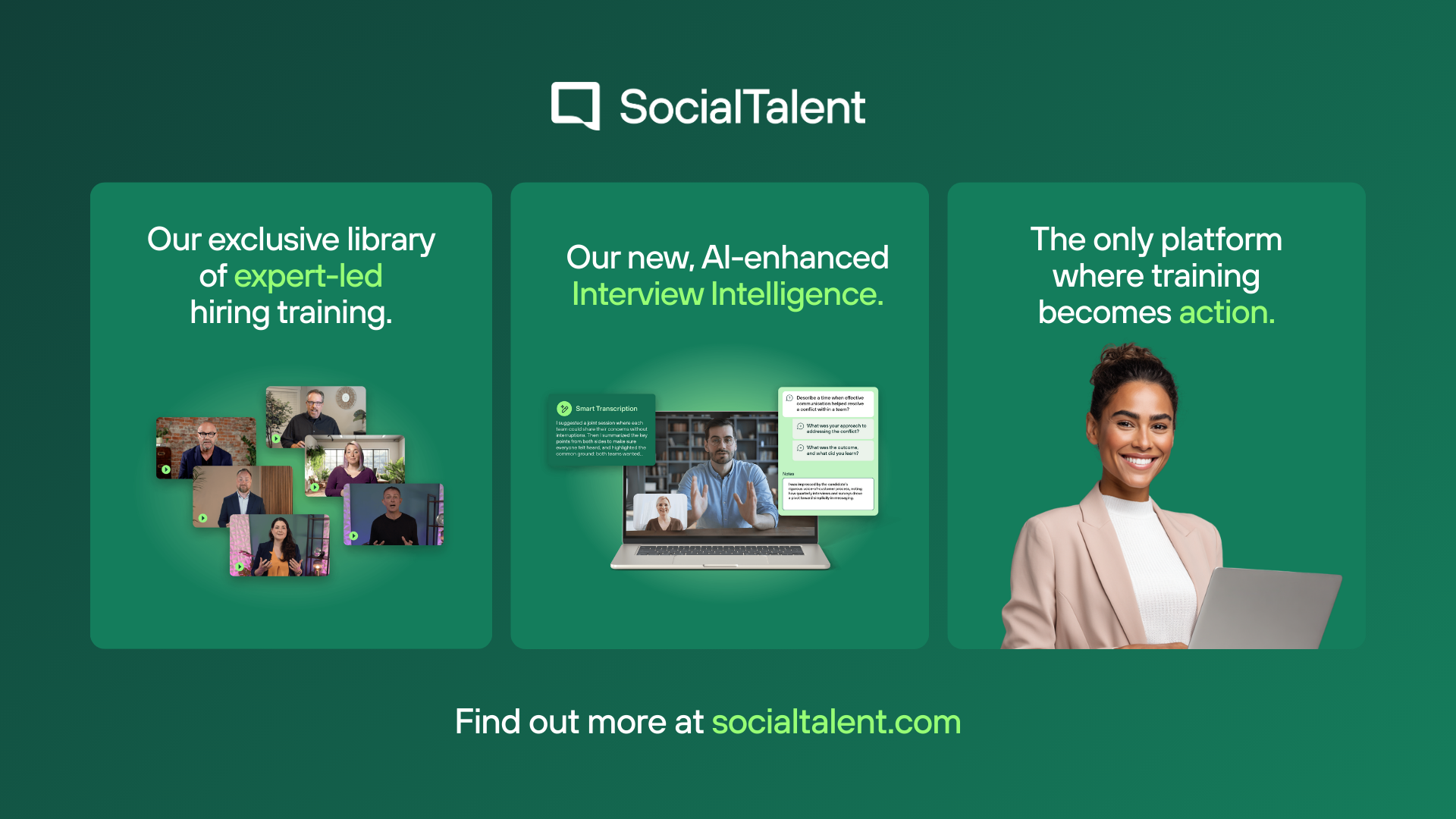From the Gen Z stare to office frogging to task masking, new discourse about Gen Z in the workplace seems to erupt every few weeks.
The generalizations pile on: They hate the office, they’re overly sensitive, they job hop, they can’t unplug … You’ve heard it all before.
Here’s the thing: If you go looking for generational tension, you’ll find it. If you go looking for common ground, you’ll find that too. What I see in Gen Z is a hunger for purpose. In fact, 80% of Gen Z employees seek workplaces that align with their values. They want to do work that matters—and they’re not afraid to say so.
I admire that clarity. So, instead of speculating, I sat down with someone from Gen Z to learn more.
Here’s what I took away from my conversation with Olivia Tobin, a software engineer at SurveyMonkey, and how younger employees are helping reshape work for the better.
Gen Z is focused on solving problems
Oliva told me that one of the biggest misconceptions about Gen Z is that they’re overly sensitive and unwilling to work hard. In reality, they’re eager to make change and hungry for feedback.
I’ve seen that, too. I think that Gen Z’s desire to make a larger impact often gets misinterpreted as a lack of commitment to the task at hand. They tend to think deeply about what they want from work and how it connects to larger issues like social injustice, income inequality and the climate crisis.
While they’re known for their idealism, it doesn’t mean they are unwilling to work hard. It means they’re motivated to work hard when they can see a clear connection to solving real-world problems. Imagine if everyone in your workforce shared that motivation.
See also: The Gen Z conundrum: How HR can welcome this very different generation
Gen Z looks at mistakes as learning opportunities
As for being overly sensitive? Surely some are—but that’s true in every generation.
For many, what looks like “over-sensitivity” is really just the growing pains of learning to accept professional feedback—a skill that matures over time.
Olivia stressed the importance of cultivating blame-free work environments so Gen Z employees can focus on learning, problem-solving and accountability over criticism.
“Being surrounded by people who don’t hold mistakes against you and give you actionable feedback is invaluable,” she said. “Having that feedback is key to taking on higher-impact projects that will push you outside your comfort zone.”
The lesson for leaders: Offer feedback generously, notice progress and show people that growth is the goal.
Gen Z wants to work smarter
We know that Gen Z doesn’t consider mental wellbeing and work/life balance as nice-to-haves. For them, these things are a priority. This mindset tracks, given that many came of age during a global pandemic.
It’s not about working less. It’s about working better—and feeling better while you do it. Olivia and I are aligned about that.
“As an engineer, I’ve learned the most in settings where I’m physically sitting next to someone and working through a bug or whiteboarding out a solution to an infrastructure problem,” she said. “But remote work has been a game-changer, boosting productivity by giving people more uninterrupted focus time. Hybrid work gives people the best of both worlds.”
I agree. The goal isn’t to pick a side—it’s to make the most of each environment.
Gen Z says “no” to excess
Many Gen Z workers feel overloaded by email. More than a third (36%) say they have over 1,000 unread work emails in their queue (double the rate of other generations).
Olivia prefers centralized communication platforms (like Slack) that offer direct messages for private or urgent issues, team channels to centralize action items and public channels for general knowledge sharing.
She also shared another preference: ditching traditional office dress codes.
“SurveyMonkey—and tech in general—is great about not forcing people into business casual,” she said. “I think Gen Z does their best work when they can be their authentic selves, which means dressing in a way that reflects their own personality and is also comfortable to wear all day.”
Fashion is about self-expression. And traditional office attire is just not the vibe for many Gen Z workers.
Gen Z demands authenticity
Gen Z is leading the charge in values-based shopping, and that same scrutiny extends to the workplace. Olivia says authenticity and activism were two important factors that drew her to SurveyMonkey.
“Gen Z is a generation that’s really concerned with practices like greenwashing and performative activism,” she said. “We’re looking for workplaces where the impact is real.”
She said it’s important for leadership to not only relate projects and initiatives to larger issues, but to have the data to back up the impact to show that the effort is genuine. I agree. Authenticity isn’t just about what you say; it’s about what you prove.
Leaders need to back up their efforts with data, and take real time to know their people and show who they are.
The future of work is a two-way conversation
For all of us in leadership roles, understanding Gen Z’s approach is critical, and it’s not one-way, either. We have some things to teach Gen Z, and they have a lot to teach us in return. They are the customers, colleagues and bosses of the future. Great leadership means listening, learning and evolving.
When we engage in real conversations like this one, we build workplaces where every generation can thrive.




















